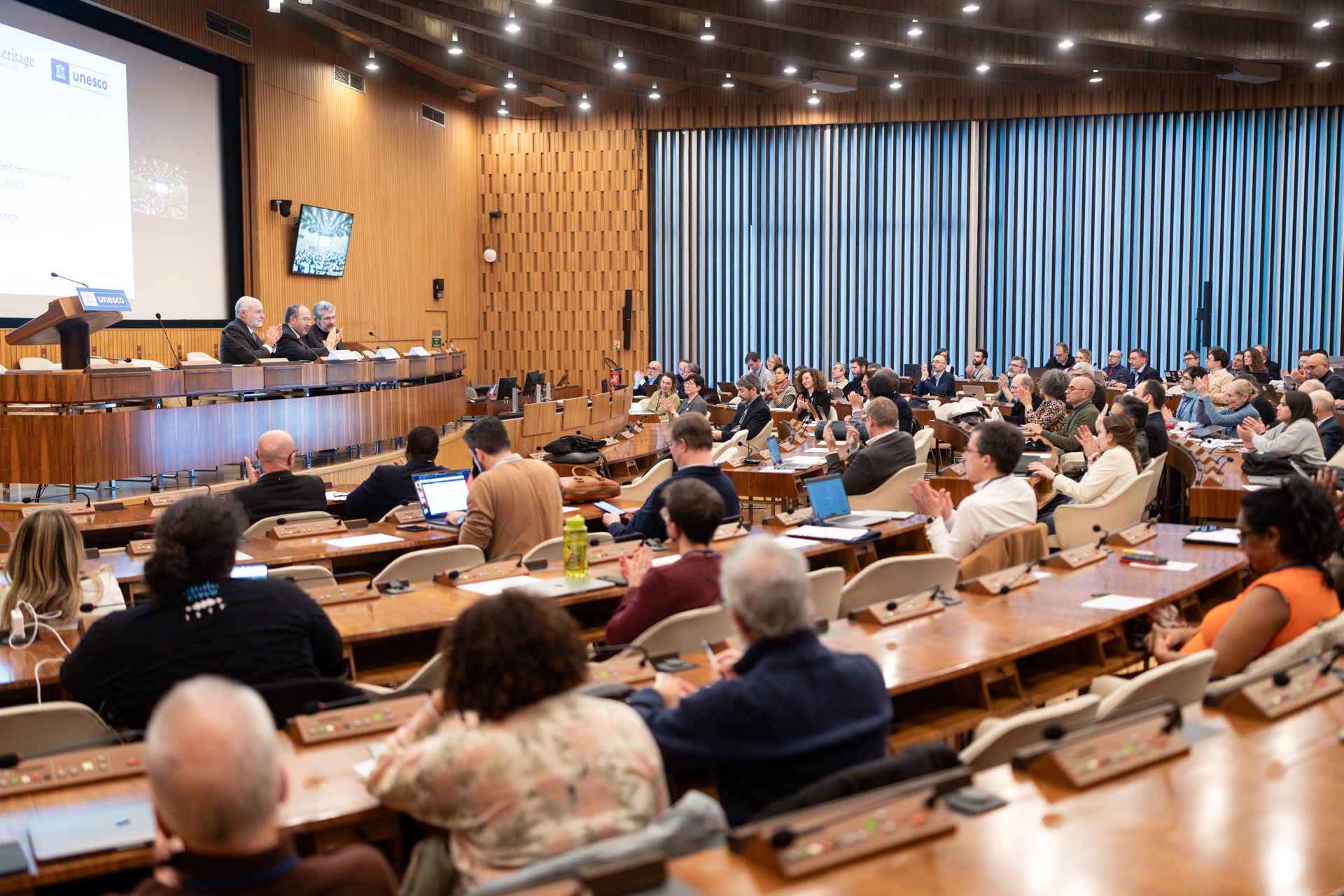
At the UNESCO headquarters in Paris, the Software Heritage Symposium was held. This event brought together academics, industry experts, and decision-makers to address the main dilemmas and challenges surrounding topics such as software, open source, artificial intelligence, and society. The symposium, which also celebrated the 10th anniversary of the Software Heritage initiative launched by Inria in 2015, an official side event of the AI Action Summit, discussed themes that will be key in the upcoming World Summit.
Founded in 2016 with the support of various organizations, including Inria, Software Heritage's mission is to collect, preserve, and make publicly available all source code, serving as a tool for the study of software, its history, and evolution. By storing code from multiple platforms, it enables the creation of a multitude of applications, from cultural heritage to industry and research.
During the symposium's opening, Roberto Di Cosmo, Director of Software Heritage, highlighted the progress achieved by the initiative in recent years and the support received from various institutions in its development, all committed to the vision that software and source codes are part of humanity's heritage.
Bruno Sportisse, Chairman and CEO of Inria, who continued the initial presentation, addressed, among other topics, the emergence of artificial intelligence in various sectors, the impact of projects like Software Heritage, and the need to foster instances of international collaboration.
The symposium continued with various talks and panels, which addressed topics such as:
-
Cybersecurity and regulation: The impact of strict regulations, such as the EU's Cyber Resilience Act, on the software ecosystem was analyzed. The importance of open infrastructures to ensure traceability, security, and regulatory compliance was highlighted, promoting innovation and protecting digital ecosystems.
-
Open and transparent AI: Strategies for the responsible development of artificial intelligence were discussed, with open models that promote equity and reduce global inequalities. Special attention was given to how these technologies can benefit underserved regions.
-
Open science: The relevance of non-commercial infrastructures for the preservation and dissemination of scientific knowledge was addressed. Additionally, the role of Software Heritage in the community management of source code as a key product of research was highlighted.
-
Cultural preservation and education: The value of source code as cultural and educational heritage was explored. Furthermore, the need to recognize diverse contributions and to promote digital literacy, ensuring inclusive participation in today's digital society, was emphasized.
Open source: a lever towards responsible AI innovation and democratization in Latin Americ
In this edition, Nayat Sánchez-Pi participated in the panel "AI, Transparency, and Regulation." Led by Aurélie Simard, Executive Director of the Paris Center of Expertise for International Cooperation on AI, the panel brought together renowned experts from the public, scientific, and business sectors, including Gaspard Demur, Deputy Head of Unit, EU AI Office; Agata Ferretti, leader of the AI Alliance for Europe at IBM Research; Stefano Maffulli, Executive Director of the Open Source Initiative; Fabio Porto, Senior Researcher at the Laboratório Nacional de Computação Científica; and Abhishek Singh, Joint Secretary of the Ministry of Electronics and Information Technology of India.
The panelists discussed the challenges and opportunities presented by artificial intelligence. During the panel, the role of open source in accelerating AI technologies was explored, recognizing both its benefits for technological acceleration and innovation, as well as its implementation, regulatory, and security challenges.
In her intervention, the Director of Inria Chile spoke about the impact of the open source culture on collaborative and progressive development for AI within the computational scientific community. She highlighted that this method enables collaborative AI development, emphasizing the work of Software Heritage in maintaining "comprehensive information" about source code.
Subsequently, she reviewed Chile's experience in developing AI technologies and how countries in the region have adopted these tools in their processes. She particularly highlighted Chile's work in regulating and promoting the use of AI, noting that the country has followed European and French strategies in aspects such as ethical considerations, governance, and public-private collaboration.

Verbatim
Open source AI represents an important first step towards transparency, replicability, reuse, technological independence, innovation acceleration, and democratization. The work of Software Heritage, which stands out for its role in maintaining 'comprehensive information' about source code, has enormous potential to accelerate the positioning of open source AI as a central pillar of innovation in Chile and Latin America, strengthening the existing infrastructure.
Director of Inria Chile
